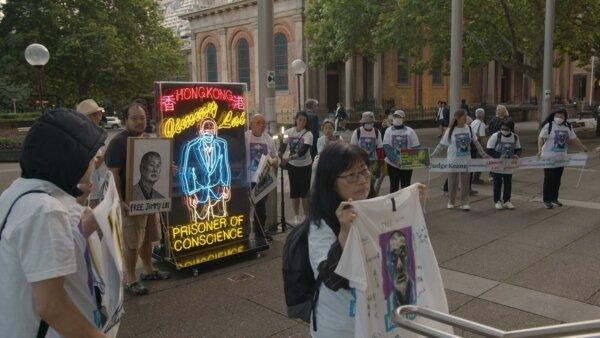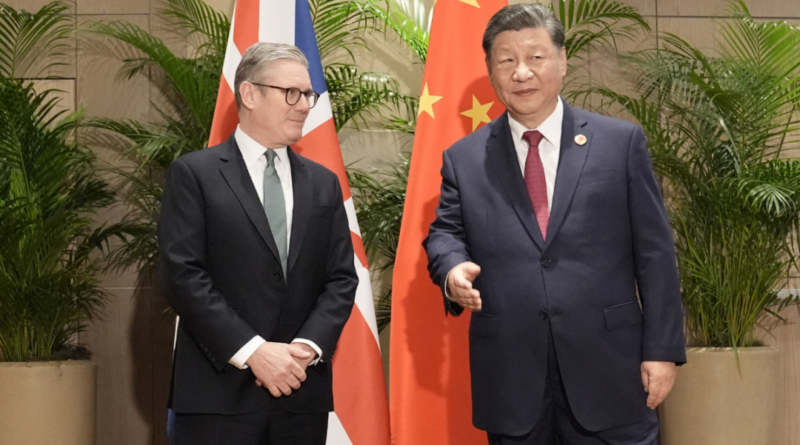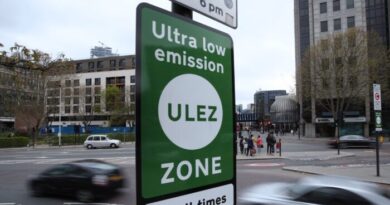UK’s Starmer Under Pressure to Take a Harder Stance on China at G20 Summit
The government has faced criticism from lawmakers and human rights campaigners over how it handles China.
British lawmakers and human rights advocates have criticized Prime Minister Sir Keir Starmer after he declined to issue a public condemnation of Hong Kong’s sentences of pro-democracy activists at the G20 summit in Rio de Janeiro on Tuesday.
Starmer also faced censure over his meeting with Chinese leader Xi Jinping on Monday, footage of which showed the prime minister bringing up China’s revived plan to build a mega embassy in London but not demanding the release of Jimmy Lai, a pro-democracy media mogul and a British national jailed in Hong Kong.
Australian Foreign Minister Penny Wong said that she was “gravely concerned” by the sentences, and urged China to repeal the draconian law.
The minister added, “The UK will always stand up for the people of Hong Kong, and all states should uphold their international obligations to protect these fundamental rights.”
Starmer’s response drew criticism from politicians and human rights advocates, including senior Conservative MP Sir Iain Duncan Smith, who is sanctioned by Beijing over his public condemnation of the Chinese regime’s human rights violations.
In an email to The Epoch Times, Lord Alton of Liverpool, who is also sanctioned by communist China, said the prime minister’s failure to publicly condemn the sentences is “lamentable.”
“Increasingly government policy seems to be determined to ‘follow the money’ with a complete failure to learn from the lessons of the past. Making ourselves more and more economically dependent on a state accused of genocide, which uses slave labour, is an appalling direction of travel for a Labour government,” he said.
Mark Sabah, UK and EU director of the Committee for Freedom in Hong Kong Foundation, said he is disappointed that the UK’s statement through Minister West didn’t come from the prime minister or Foreign Secretary David Lammy.
“If they really want to show that they are on the side of Hongkongers and that they care about the future of Hong Kong, then they should have made a public statement,” he told The Epoch Times.
Benedict Rogers, co-founder and trustee of Hong Kong Watch, said while the new Labour government is still carrying out its “audit” of the UK’s China policy, early signs, including Starmer’s remarks on Tuesday, show “worrying” signs that the government has “softened quite considerably compared to the previous government and also compared to Labour’s position in opposition.”
In response, a spokesperson for the Foreign, Commonwealth & Development Office (FCDO) pointed The Epoch Times to West’s earlier statement. The Cabinet Office didn’t respond by the time of publishing.
Jimmy Lai
Since one-party Beijing imposed its rubber-stamped NSL on Hong Kong in 2020, the UK government has declared that China has been in continuous breach of the Sino-British Declaration, which was meant to guarantee democracy and the rule of law in the former British colony for at least 50 years following its handover to Beijing in 1997.
She asked whether the prime minister had asked Xi to release Lai, who has been jailed under Beijing’s NSL.

Protesters outside a lecture by Judge Patrick Keane in Sydney, Australia, calling for the release of Jimmy Lai, a political prisoner held in Hong Kong. Supplied
“We understand the prime minister did raise concerns, but that is not enough. Did he call for Jimmy Lai to be released and for an end to his politically motivated trial? A yes or no answer is needed, because there is an important distinction between the two,” Patel said.
Duncan Smith called on the government to follow the steps of the United States and sanction senior officials in Hong Kong.
Lai, 76, has been held in solitary confinement. According to the British government, Hong Kong authorities have insisted that the Hong Kong resident is a Chinese citizen, although he never held a Chinese passport, and that the British Consulate is barred from providing assistance.
“We are concerned by reports of Jimmy Lai’s deterioration [of] health in prison,” he said.
Upon the mention of Lai, British journalists were ushered out of the room by Chinese officials.
Embassy
Starmer also drew criticism over China’s planning application for a new embassy in London.
China’s plan to turn the site of the old Royal Mint into the largest diplomatic base in the United Kingdom was previously derailed after local councillors rejected the planning permission in December 2022.
The rejection followed a series of protests and incidents involving Chinese diplomatic sites leading to local concerns.
After the rejection was upheld by London Mayor Sadiq Khan, the embassy didn’t submit an appeal last year and blamed the Conservative government for failing to intervene as the deadline elapsed.
As the application has been called in, a government-appointed inspector will hold a public inquiry into the proposal and make recommendations to Housing and Communities ministers, who will then make a decision on the case.
After Starmer’s meeting with Xi, shadow minister for national security Alicia Kearns accused the government of prioritizing the embassy “at the request of Xi” and asked why the government had intervened in the embassy case.
In response, Dodds, the FCDO minister, said it’s “standard for applications to be called in if they affect other governments” and that the call-in “should not be taken as any indication of our views on the merits of the scheme.”
In an email to The Epoch Times, a spokesperson for the Ministry of Housing, Communities & Local Government said, “Applications for a new Chinese embassy in Tower Hamlets have been called in for Ministers to decide. A final decision will be made in due course.”





